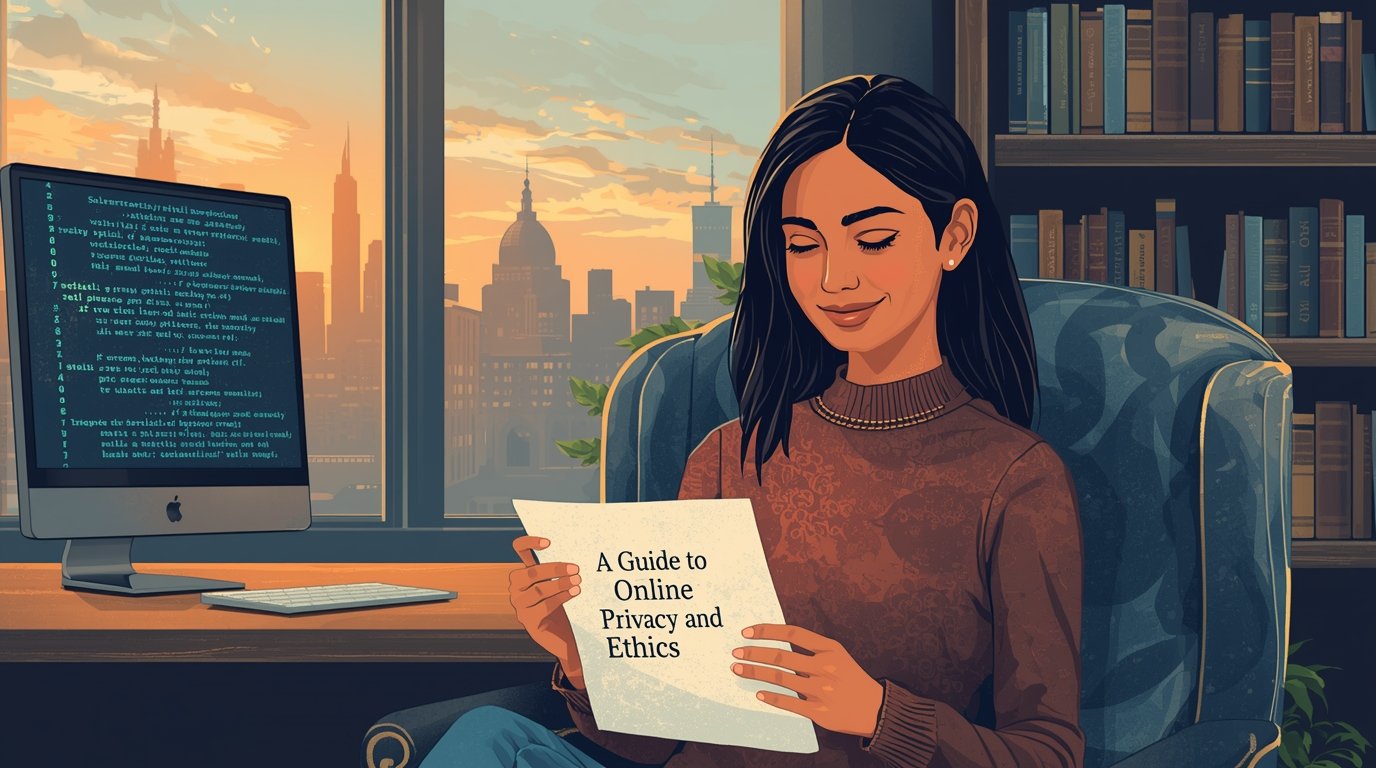Emiru Fapello & the Dark Side of Digital Fame: A Guide to Online Privacy and Ethics.
Emiru Fapello & the Dark Side of Digital Fame
In the era of always‑on cameras, broadcast platforms, and social media, digital fame often comes hand in hand with deep vulnerabilities. The phrase Emiru Fapello has begun circulating in certain corners of the internet, invoking a disturbing intersection of influencer culture, leak sites, and nonconsensual content distribution.
This article explores what lies behind that phrase: who Emiru is, what kinds of platforms facilitate unauthorized content circulation (e.g. Fapello), how search culture amplifies harm, and what both creators and audiences can do to protect privacy, ethics, and dignity online.
Emiru Fapello Search Trend
Who Is Emiru?
Emiru (born Emily‑Beth Schunk) is an American streamer and cosplayer known for her Twitch broadcasts, gaming content, and engaging personality. She rose through the streaming community via “just chatting,” cosplay, and collaboration with other creators, and currently holds a large following. Wikipedia. In 2022, she became a co‑owner of the organization One True King (OTK).
Emiru has also spoken publicly about the dangers experienced by streamers: fears of “stream snipers” that can track real‑life location during IRL streams, and instances of stalkers showing up at her residence. She has even revealed that a stalker was institutionalized, an event she described as a relief for her own safety.
In short: Emiru is not a random target; she is a high‑profile creator navigating the risks endemic to public life online.
Why Is Her Name Associated with Fapello?
The pairing of her name with Fapello arises from reports and rumors that images or videos tied to Emiru (or purporting to be so) have appeared on sites or channels that host or distribute leaked or scraped content often in a nonconsensual or unauthorized way.
While I found no verified evidence that Emiru herself has confirmed a specific category or incident tied to a site named Fapello, multiple sources claim her name has been dragged into leak culture, reflecting how prominent creators may be victimized by unauthorized content sharing. This is enough to spark curiosity, speculation, and search trends such as “Emiru Fapello.”
Importance of Discussing Online Content Ethics
When the name of a content creator appears alongside sites that specialize in user‑uploaded NSFW or leaked content, the line between curiosity, exploitation, and active harm blurs. This is not simply a gossip topic. It touches on deeper issues:
-
Consent and autonomy: creators deserve control over how their image is used
-
Audience responsibility: not every click is harmless
-
Platform culpability: how much moderation or legal responsibility should fall on services that host or distribute such content
-
Cultural consequences: how leak culture disproportionately targets women, creators, and marginalized identities
Understanding Emiru Fapello is an entry point into these urgent conversations.
What is Fapello and Why Is It Controversial?
Overview of the Platform
Fapello (or variations of that name) seems to refer to websites or user‑upload platforms that aggregate and repost intimate, explicit, or private content often scraped from social media or other sources and distribute it widely, sometimes bypassing content moderation. Such platforms may function in legal gray zones or even be outright illicit.
They may allow users to upload content, use invite‑only channels, or distribute via messaging apps like Telegram, making takedowns harder. Because they often claim anonymity, platforms like these become attractive repositories for unauthorized imagery.
NSFW and User‑Uploaded Content Nature
The core of the controversy is the nonconsensual or unauthorized nature of many uploads. Users may upload content of creators without permission, ranging from screenshots, images, videos, or even deepfake creations. The more sensational the content, the more traffic it draws.
These platforms often label themselves as “user content” aggregators or “fan uploads,” deflecting responsibility. But that can cloak serious violations: privacy breaches, defamation, harassment, and emotional harm.
Legal and Ethical Grey Zones
Because such platforms often operate internationally or on the fringes of regulation, enforcement is difficult. Some of the legal challenges include:
-
Jurisdiction: The site might host content from countries with lax laws.
-
Free speech vs. content removal: Some platforms claim they merely host user content and are protected by “safe harbor” clauses (depending on the country).
-
Copyright/image rights: Even if content is owned by a creator, unauthorized distribution can infringe rights.
-
Harassment/defamation laws: Some content might be false, manipulated, or defamatory (e.g., deepfakes).
-
Victim anonymity: Many creators are reluctant or afraid to fight legally.
Because of the ambiguity, ethical boundaries become essential: even if something is “allowed” legally, that doesn’t make it right.
How Search Trends Like Emiru Fapello Emerge
Virality, Curiosity, and Internet Culture
The internet has a perpetual hunger for scandal, unrevealed content, and the “forbidden.” When a creator’s name is tied to a leak site, it triggers curiosity: “Is there something real? What’s the truth?” Clicks follow.
Search trends balloon as forums, social media, and rumor mills spread references even if the underlying content is false or conjectural. Once the search momentum builds, it becomes self‑fulfilling: SEO systems amplify it, recommendation engines pick it up, and more users are drawn in.
Role of SEO and Social Media
Those who monetize attention content farms, gossip blogs, and aggregator sites may latch onto trending phrases (like “Emiru Fapello”) as clickbait. Even if no legitimate evidence exists, they generate pages with that term to capture traffic.
Social media (X/Twitter, Reddit, Discord, Telegram) then recirculates screenshots, rumors, or memesoften stripping original context. As more pages use the term, search engines treat it as a valid topic and surface it more.
This amplifies harm, even when the content doesn’t hold water.
Impacts on Targeted Individuals
For creators like Emiru, these trends bring:
-
Invasive searches into private life
-
False rumors are gaining legitimacy
-
Emotional distress due to constant exposure
-
Reputational damage (even from baseless claims)
-
Difficulty safely refuting or controlling narratives
Thus, a trending term like “Emiru Fapello” is not just gossip—it’s a form of digital harassment.
The Privacy Risks Influencers Face
Case Studies Beyond Emiru
While our focus is Emiru, other creators have been targeted by nonconsensual leaks, deepfakes, or doxxing. Examples include:
-
Revenge porn victims, where private images are distributed without consent
-
Deepfake videos overlaying faces into explicit scenes
-
DM or screenshot leaks between public figures
-
Stalker behavior tied to real locations or addresses
These incidents show how fame magnifies vulnerability: the more visibility you have, the more likely you are to be a target.
Deepfakes, Leaks, and Unauthorized Uploads
-
Deepfakes: AI tools can generate videos that simulate a person doing or saying things they never did, sometimes with explicit content. The victim never consented.
-
Leaks / unauthorized uploads: Private media (photos, videos, DMs) can be stolen, shared, reposted, sometimes by “fans” or malicious actors.
-
Scraping: Content from social media (stories, posts) can be scraped systematically and reposted elsewhere outside original privacy settings.
Creators often struggle to trace every instance of misuse, and takedown efforts are time-consuming and incomplete.
Real‑World Effects on Mental Health and Reputation
The toll is significant:
-
Anxiety, paranoia, insomnia
-
Depression, shame, self-doubt
-
Distrust of online platforms or fans
-
Damage to brand partnerships, sponsorships
-
Hesitancy to engage in certain content (IRL streams, personal sharing)
Emiru herself has expressed anxiety about revealing location or doing IRL streams, citing fear of stream snipers. She’s also had a stalker issue in real life, which affected her sense of safety.
In short, the real world and digital world collide in dangerous ways.
Protecting Digital Privacy as a Creator or User
Tools and Best Practices
Creators and users alike can take steps to mitigate risk:
-
Strong account security: use two-factor authentication (2FA), unique passwords, security keys
-
Limited personal exposure: avoid sharing addresses, live location, and room layouts
-
Use aliases/pseudonyms where possible
-
Tight privacy settings on social media
-
Watermarking or low‑resolution previews for sensitive images
-
Use content monitoring services or alerts to detect when images are being reposted
-
Opt for platforms with robust moderation and takedown support
Reporting and Takedown Requests
When content is posted without consent:
-
Submit formal DMCA takedown/copyright claims
-
Contact the platform’s abuse/policy team
-
Use privacy or harassment complaint forms
-
Escalate to service providers (host, CDN) if necessary
-
Document everything (screenshots, time stamps)
Persistence is key: many creators must file multiple takedown requests as content reappears.
Knowing Your Rights (Basic Legal Guidance)
While laws differ by country, some general rights may apply:
-
Revenge porn / nonconsensual pornography laws (in many U.S. states, parts of EU, etc.)
-
Defamation and libel rules apply if the content is false or manipulated
-
Copyright/image rights: owning content gives some protection
-
Harassment/stalking statutes
-
Right to be forgotten / removal requests (in jurisdictions like the EU)
Consulting a legal professional is ideal, especially when jurisdiction, cross-border hosting, or anonymity complicate matters.
Platforms, Moderation, and Responsibility
What Platforms Like Fapello Are Doing (or Not Doing)
Platforms that host or distribute such content often:
-
Claim to be purely user-generated content hosts
-
Hide behind anonymity or offshore registration
-
Lack clear content moderation or transparency
-
Delay responses or ignore takedown requests
These gaps enable them to remain operational despite widespread abuse.
Role of Twitter, Reddit, Google, etc.
Larger platforms have some responsibility:
-
Search engines: demoting or removing toxic, non-consensual content
-
Social platforms: moderation policy enforcement, report systems
-
Link hosting: preventing rehosting of illicit content
However, inconsistencies in policies, enforcement, and response times remain major issues.
Public Pressure vs Legal Action
Often, creators rely on public pressure (calling out platforms, mobilizing fans, raising awareness) when legal channels are slow or impractical. This public visibility can spur faster takedowns or policy changes.
Nevertheless, legal action, when viable, provides stronger long-term protection, though it is costlier and more complex.
Educating the Audience: What Should We Do as Users?
Ethical Browsing Behavior
Users hold responsibility too:
-
Avoid intentional searches for leaked content
-
Do not click or share content that violates someone’s privacy
-
Don’t engage with pages whose primary aim is exploitation
-
Encourage respectful content consumption
Your clicks and shares give visibility and legitimacy to harmful content.
Encouraging Respect and Consent Culture
-
Promote creators’ right to refuse distribution
-
Normalize boundaries: people can say no
-
Use language that avoids shaming victims
-
Call out exploitative sites or reposts
Over time, norms shape behavior.
Supporting Creators the Right Way
-
Amplify creators’ genuine content
-
Help with reporting abuse when it arises
-
Respect their privacy decisions
-
Avoid demanding personal content or overexposure
Creators should not feel pressured to constantly fight battles around content misuse.
Conclusion: What Emiru Fapello Teaches Us About the Web
A Wake-Up Call for Digital Empathy
The phrase Emiru Fapello may be whispered across forums or trending searches—but behind it lies real human vulnerability. It is a reminder that fame does not imply consent. That viral curiosity can translate into damage. That creators deserve dignity as much as visibility.
Privacy Is a Right, Not a Privilege
No matter how public a person is, they deserve control over their image, body, and narrative. When platforms, audiences, or algorithms violate that, we all lose part of the web’s promise of safe expression.
If anything, “Emiru Fapello” should motivate us to demand better:
-
For stronger content moderation
-
For enforceable laws
-
For audience awareness
-
For empathy, in every click
Let us build a space where creators shine, and their boundaries are honored.





